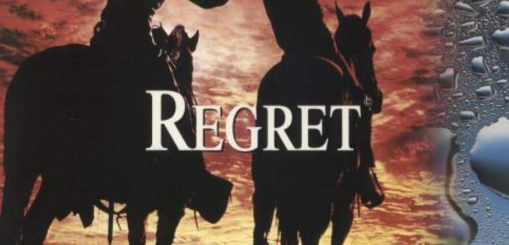Age of Consent by New Order Lyrics Meaning – Unraveling the Depths of Post-Punk Romanticism
Lyrics
These words lie inside they hurt me so
And I’m not the kind that likes to tell you
Just what I want to do
I’m not the kind that needs to tell you
Just what you, want me to
I saw you this morning, I thought that you might like to know
I received your message in full a few days ago
I understood every word that it said
And now that I’ve actually heard it, you’re going to regret
And I’m not the kind that likes to tell you
Just what you want me to
You’re not the kind that needs to tell me
About the birds and the bees
Do you find this happens all the time?
Crucial point one day becomes a crime
And I’m not the kind that likes to tell you
Just what I want to do
I’m not the kind that needs to tell you, ooh-ooh
Lost you, I’ve lost you
I’ve lost you, I’ve lost you
I’ve lost you
Lost you, I’ve lost you
I’ve lost you, I’ve lost you
I’ve lost you
Lost you, I’ve lost you
I’ve lost you, I’ve lost you
I’ve lost you
Ooh-ooh-ooh
Ooh-ooh-ooh
Ooh-ooh-ooh
Ooh-ooh-ooh
Ooh-ooh-ooh
Ooh-ooh-ooh
Ooh-ooh-ooh
Ooh-ooh-ooh
Ooh-ooh-ooh
Ooh!
In 1983, New Order released ‘Age of Consent,’ a track that encapsulates a moment of raw emotional upheaval shrouded beneath an infectious post-punk rhythm. The song, heralded as one of the band’s most enduring classics, delves into themes of liberation, communication, and the bittersweet nature of love and loss. What appears on the surface as an energetic tune driven by Bernard Sumner’s jangling guitar and Peter Hook’s melodic bass, is, lyrically, a complex and emotionally charged narrative.
The track’s title itself poses a duality—referencing both the legal term for the age at which a person is considered competent to consent to sexual acts, and more abstractly, as a metaphor for entering a new phase in life or relationships. As we deconstruct the enigmatic lyrics, we approach the song as a poignant reflection of a personal crossroads and an exploration into the sensitive and sometimes painful nuances of human relationships.
The Melancholic Dance: Balancing Joy and Pain
Beneath ‘Age of Consent”s upbeat tempo lies an air of melancholy that is characteristically New Order. The juxtaposition of the joyful instrumental work with sorrowful lyrical content creates a layered listening experience that speaks to the complexities of the human condition. It’s a vibrant and irresistible dance track, yet it holds within it the weight of introspection, evoking the bittersweet essence of emotional growth and change.
Listeners are welcomed into this dichotomy, bouncing along to the rhythm even as they connect with the song’s deeper, somber reflections. This balance allows ‘Age of Consent’ to resonate on multiple levels, offering either a backdrop for euphoria or a companion to sentimentality depending on the listener’s interpretation and mood.
Communication Breakdown: When Words Fail in Love
The opening lines of the song portray a narrator who struggles to verbally express their emotions—’And I’m not the kind that likes to tell you / Just what I want to do.’ This hesitant confession is integral to understanding the song’s emotional undercurrent. The difficulty of conveying one’s desires, especially within the context of a relationship, depicts a fundamental human dilemma: the fear of vulnerability.
These lines speak to the challenges inherent in developing and maintaining intimacy. In ‘Age of Consent,’ communication is a double-edged sword. It’s both the vehicle for connection and the means by which risks are taken and sometimes, regrets are formed. New Order captures this complexity in a way that is both relatable and haunting.
The Hidden Meaning: The Passage from Innocence to Experience
The song title and the repeated line—’I’m not the kind that needs to tell you / About the birds and the bees’—imply a shift from naivety to wisdom, from childhood to adulthood. ‘Age of Consent’ speaks not just to a legal definition but to an emotional one, where confronting the truths of love and life represent consequential rites of passage.
The hidden meaning behind the lyrics may hint at the struggle to retain a piece of one’s innocence in the face of inevitable maturity. In the canon of New Order’s work, ‘Age of Consent’ resonates as a coming-of-age anthem that transcends age itself, instead mapping the internal journey of accepting and expressing one’s truest emotions.
Memorable Lines that Echo the Human Psyche
‘Crucial point one day becomes a crime’—this particular lyric strikes at the heart of the song’s narrative. What once was pivotal becomes taboo, possibly alluding to a turning point in a relationship, or even in one’s personal growth, that is later looked back on with regret or sorrow.
The repetition of ‘I’ve lost you’ towards the song’s conclusion resonates as a mantra of defeat but also of realization. There is a catharsis here, in acknowledging loss and the sometimes irretrievable nature of what was. These words linger long after the music fades, reinforcing the song’s lasting emotional impact on its listeners.
The Legacy of ‘Age of Consent’ in Music History
Over the years, ‘Age of Consent’ has maintained its status as one of New Order’s signature tracks, frequently appearing on setlists and finding new life through various covers and samples. Its appeal lies in the duality of its vibrant sound and meaningful lyrics, marking it as a timeless piece that effortlessly bridges the gap between pop sensibility and profound storytelling.
The song has also found its way into popular culture, with its influence stretching across film soundtracks, television shows, and inspiring generations of musicians. Its enduring legacy reaffirms New Order’s place in music history, not only as a band that shaped the post-punk genre but as artists who understood and articulated the emotional tenor of their times with peerless clarity and depth.








